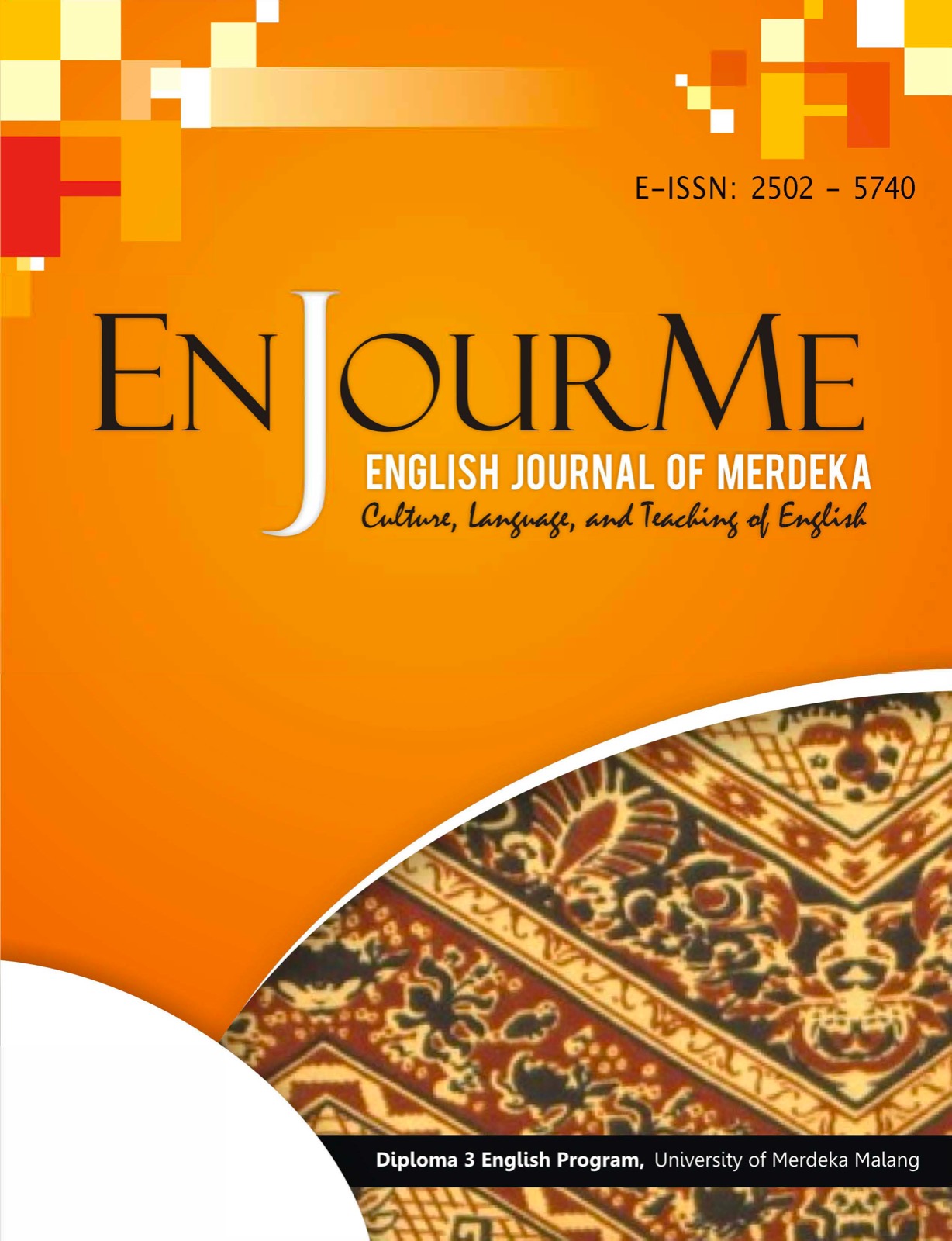Problems the first year students encounter in EFL learning at private universities of Bangladesh: Four private universities in consideration
DOI:
https://doi.org/10.26905/enjourme.v8i2.12060Keywords:
Bangladesh, EFL learners, first year, problems, suggestions, universityAbstract
The English language becomes a key factor in the academic life of first-year FFL learners at the graduation level in Bangladesh as this is the first time when they have to be exposed to English Medium Instruction (EMI). When the first-year FFL learners at private universities try to speak and write in English it becomes a challenge for them. The research intends to find out the first-year FFL learners problems they face at Private Universities in Bangladesh and some suggestions to overcome them. 40 FFL learners from 4 different private universities participated and the mixed method comprising qualitative and quantitative methods is applied in this study. The data has been collected through the research instruments like survey questionnaires and interviews. The study recommends that vocabulary skills, pronunciation, teaching techniques of teachers, syllabus design, motivation, and a proper environment are important factors that should be developed to enhance their communicative competence. And for overcoming these problems they need motivation, to know more words and their use in sentences, and knowledge regarding sentence structures. And also they need an English reading environment inside and outside of their classroom.        Â
Â
References
Ahmad, S. (2014). A Socio-psycholinguistic investigation into the correlation between English language learner motivation and the present status of EFL learning in Bangladesh. Bangladesh Research Foundation Journal, 3 (1), 61-74.
Amir F. (2022). Teaching English in Bangladeshi Secondary Schools: A Blessing or A Curse. ingua Didaktika: Jurnal Bahasa dan Pembelajara Bahasa
DOI : https://doi.org/10.24036/ld.v16i2.120304.
Ayuni M. (2018). Problem Based Learning in Foreign Language Learner’s (FLL) Grammar Class: How Will Students Perceive It? International Summit on Science Technology And Humanity.
Azad H.and Nazmul M.(2017). Language in India. Challenges Faced by Students in Learning English. Vol. 17 Issue 6, p1-92. 92p. https://web.s.ebscohost.com/.
Hasan, K., &Akhand, M. M. (2009). Challenges & suitability of TESL at the college level in Bangladeshi context. Journalof Nepalese English Language Teaching Association (NELTA), 14(1–2).
Celce-Murcia, M. (2008). Rethinking the Role of Communicativ Competence in Language Teaching. Intercultural Language Use and Language Learning, 41– 57. doi:10.1007/978-1-4020-5639-0_3
Florez, M. C. (1999). Improving adult English language learners'speaking skills. ERIC Digest.Islam, W., Ahmad, S., & Islam, M. D.(2022). International Journal of TESOL & Education. Investigating the Problems Faced by the University EFL Learners in Speaking English Language. Vol. 2; No. 2; 2022 56. https://i-jte.org.DOI:10.54855/ijte.22223.
Mandal and Pragya P.(2019). Difficulties in learning english faced by Bsecondary level students in Bangla medium schools in Bangladesh. https://dspace.bracu.ac.bd/xmlui/handle/10361/12410
Rahman, S. (2015). English language policy initiatives and implementation in Bangladesh: Micro political issues. Asian EFL journal, 88, 59-96.
Shagia Afrin.(2016). Problems of Non-English Major Undergraduate Students in Bangladesh: An
Observation.Open Journal of Social Sciences.,12 pages. http://creativecommons.org/licenses/by/4.0/.
Downloads
Published
Issue
Section
License
Authors who publish with this journal agree to the following terms:
(1) Copyright of the published articles will be transferred to the journal as the publisher of the manuscripts. Therefore, the author confirms that the copyright has been managed by the journal.
(2) Publisher of EnJourMe (English Journal of Merdeka) : Culture, Language, and Teaching of English is University of Merdeka Malang.
(3) The copyright follows Creative Commons Attribution–ShareAlike License (CC BY SA): This license allows to Share — copy and redistribute the material in any medium or format, Adapt — remix, transform, and build upon the material, for any purpose, even commercially.
















